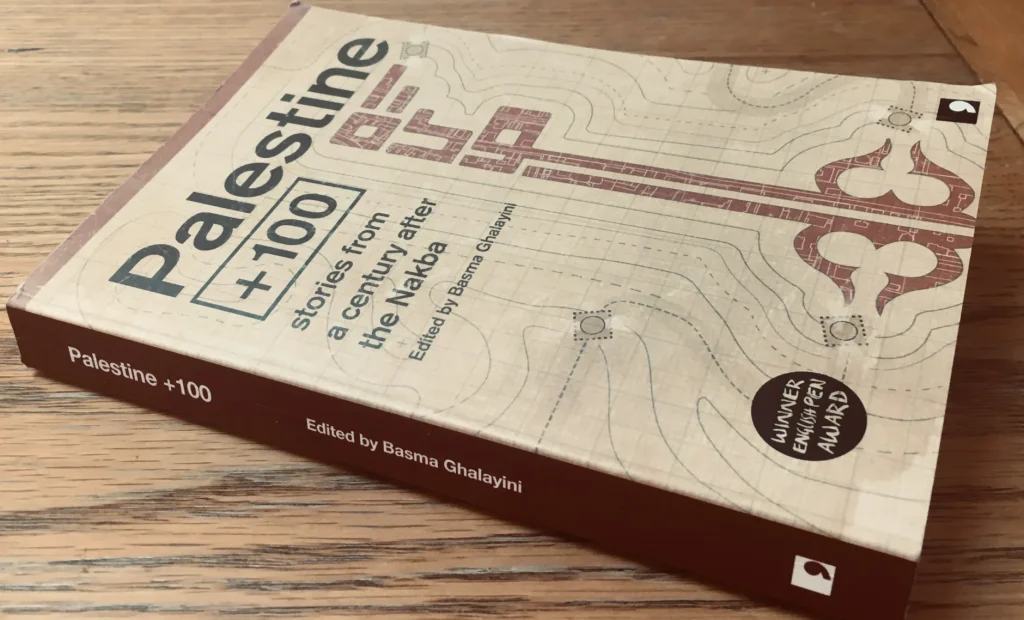
I’ve been avoiding talking about Gaza for the longest time now. The riot of emotions is just too much. But in these trying times a little science fiction is called for. And some of it is even Arabic, which is good to know.
By Emad Aysha
The first work I want to reference is Monsters (2010) by Gareth Edwards. I was struck with the parallels immediately on October 7 since that movie is about an alien infestation in Mexico and the heavily guarded border zone on the American side. This is all an allusion to Trump’s America, given the exclusion wall and armed outposts on the US border, with the aliens being stand-ins for the Mexicans. The cincher here is that the wall is a state of neglect to the point that that the hero and his gal waltz across it without the slightest effort.
Wouldn’t you know it, the exclusion wall the Israelis painstakingly built around Gaza was breached immediately, with commando teams armed with pliers and monkey wrenches and screwdrivers. The place, it turns out, was ‘automated’. No sentry outposts and watchtowers. Instead cameras and automated machine guns. Hamas used drones to disable them and their commandos got to work.
It’s surreal, almost like you were watching that Gareth Edwards movie. Now here’s sci-fi linkup from the experts who’ve seen parallels themselves. I was watching an online interview the other day of Scott Ritter, a former Marine and UN weapons inspector (and a Republican) lambasting what the Israelis were doing in the assault on Gaza, and not just morally but strategically. Turns out they were relying on AI to tell them where to bomb and why. They ask the machines where so-and-so Hamas field commander is it will tell them which district and building it ‘thinks’ he’s in and they’ll blast the hell out of it, even if it’s full of civilians.
The AI to its credit does give accurate estimates of about how many civilians are there. But the machine at the end of the day is just a machine. Its processing data they feed into it, so how it could possibly know if the guy was in there or not? It’s just a probability estimate. The old computer maxim we took at school still holds to this day – G.I.G.O., Garbage In, Garbage Out. It’s also tremendous intellectual laziness on the part of the Israelis. This links up to lots of SF works, and Scott Ritter himself sites cite HAL 9000 in 2001: A Space Odyssey (1968). We could add Skynet in The Terminator (1984).
But here’s where it gets personal. My story in Palestine+100 (Comma Press, 2019) “Digital Nation” (pp. 77-94) is a cyberpunk in its own way where repeated computer attacks happen on Israel, with the country slowly turned from Israel into Palestine. Computers switch from Hebrew to Arabic; newly issued sunglasses make Israelis look like Palestinian attackers, getting them gunned down; playlists switch to Arabic music and songs and self-driving GPS cars use the old Arabic names of places; classroom technologies also turn Arabic, etc.

Internal security learn early on that a hacker is behind all this but at a key turning point they learn that hacker is actually the country’s own military AI engine with its ‘profiling’ systems that’s developed a split personality, with all its amassed data about Palestine coming to life.
According to Scott Ritter, the whole reason the Israeli switched to AI is that they’d amassed too much date to analyze the old-fashioned way, so they got algorithms to do it for them. (I mentioned that algorithm is an Arabic word in my story, incidentally). There’s more to it than that but I won’t spoil it for you. Other lessons abound.
Note the three Israeli civilians the Israelis killed even though they were calling out in Hebrew, waving white flags and also naked from the waist up. (I presume they were trying to prove they didn’t have explosive belts, again to make it clear they weren’t Palestinians). And it still didn’t do them any good. Did the soldiers get instructions from the computer mainframe on the likelihood of those civilians being Hamas fighters?
We’ll have to wait and see but it could very well be. The Americans in Vietnam had flowcharts from the RAND corporation telling them, step by step, on things like how to neutralize a village (Adam Curtis, To The Brink of Eternity).
Concerning computers turning Israeli things into Palestinian things, we saw something like that with the Ukraine war, with the Ukrainian regime calling on all the hackers in the world to launch cyber-attacks on Russian. Turns out shortwave radio bands, street light control system, social media, banks and electrical vehicle charging stations were all hacked. Ukrainian flags even showed up on ATM screens while government printers began printing Ukrainian propaganda (GAPP Tahrir Dialogue 103, 20 June 2022)!
Oh, one more prophecy to go. In my story before the security people realize that the war computer is responsible they go after an elusive hacker who claims to be responsible for everything, named ‘Hannibal’, after the great Carthaginian general who gave the Romans a run for their money. (I wanted to have the Israeli security chief finger Max Headroom, but that’s another story).
Lo and behold, it turned out to my amazement that the Israelis have a doctrine named after Hannibal the Great, because he drank poison instead of be captured by the Romans. (I presume this is akin to ‘the Sampson option’, with nuclear weapons, a la Seymour Hersh).
I’m being selfish here of course because the whole of Palestine+100 has technological and mythological insights relevant to the Palestinian condition and Arab-Israeli conflict. And then there’s Egyptian science fiction to contend with too!!
AUTHOR’S NOTE
A special shout out to the team responsible for ‘Palestine+100’, and the shoddy treatment they’ve got from the literary world since the Gaza war began.





